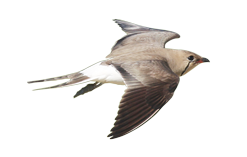Civil society organizations (CSOs) are essential actors in Mediterranean wetland conservation through their participation and coordination of management, awareness raising, and monitoring efforts. However, they are often stretched thin in fulfilling their financial and technical capacities. Since 2018, over a dozen CSOs have participated in concerted efforts to build capacity for locally relevant wetland management in the Southern and Eastern Mediterranean. Impacts of efforts so far include restoration projects, installations to promote public awareness, training and education modules, and the early stages of a network of CSOs to share lessons learned and best practices.
Project objectives
PROZHUM aims to enhance the capacity and impact of civil society organizations for wetland conservation in the Southern and Eastern Mediterranean, develop and share knowledge on a pilot restoration wetland effort, and facilitate understanding among decision makers of the ecological state of wetlands. The wide-ranging activities of the project rely on the existing networks of the Mediterranean Waterbirds Network, the Mediterranean Alliance for Wetlands, and the Mediterranean Wetlands Observatory. To improve the technical and organizational skills of the partner organizations, the PROZHUM project supports 26 wetland management and protection projects in 10 countries.
Actions & methodology
Cross-network collaboration
The wide-ranging activities of the PROZHUM project rely on the existing networks of the Mediterranean Waterbirds Network (MWN), the Mediterranean Alliance for Wetlands (MAW), and the Mediterranean Wetlands Observatory (MWO) to cultivate awareness, support, and action for wetland conservation.
- The scientific indicators on the ecological state of wetlands developed by the MWO will aid in informing the development of local decisions and advocacy measures for conservation. Updated wetland trends will also be distributed to key decision making audiences through international events.
- The MAW’s Green Light restoration mechanism will be broadly shared with local organizations to promote the identification of sites for restoration and the development of advocacy strategies and action plans.
- The members of the MWN will build on and share the trainings and course modules focused on waterbird and wetland issues to facilitate engagement with educational institutions and students and expand efforts through project partners.
Capacity building
To improve the technical and organizational skills of CSOs, the PROZHUM project will support 26 place-based projects for wetland management and protection. The initial 14 CSOs will develop and implement targeted Small Projects to improve management and/or awareness of wetlands. In turn, these organizations will serve as mentors and strengthen relationships with additional organizations in each of the 10 countries to develop Micro Projects and share skills and lessons learned in both project management and wetland conservation. To reinforce skill-building around restoration practices, the large-scale pilot site in the Gediz Delta of Turkey has been selected for its notable levels of biological diversity, degradation, and involvement of local stakeholders, all of which will contribute to results and lessons for all CSOs involved. Workshops and additional engagement approaches will establish a community of practice to facilitate synergies between CSOs throughout development and implementation of projects. Over the three year project, an emphasis on a collaborative process will integrate relationship-building and knowledge exchange to ensure a cohesive effort to advance CSO capacity and wetland management.
Partners

| Technical partners |
Financial partners |
|
Agence Française de Développement (AFD).
Cofinanceurs : Prince Albert 2 of Monaco Foundation |
Team
Project leader: Jane Ballard
Project team members: Laura Dami, Lisa Ernoul, Anis Guelmami, Coralie Hermeloup, Christian Perennou, Michaël Ronse, Lorena Segura, Elisa Tuaillon, Sanae Zinouni
Timeline: March 2024 – February 2027
Budget: 2.5 million €




